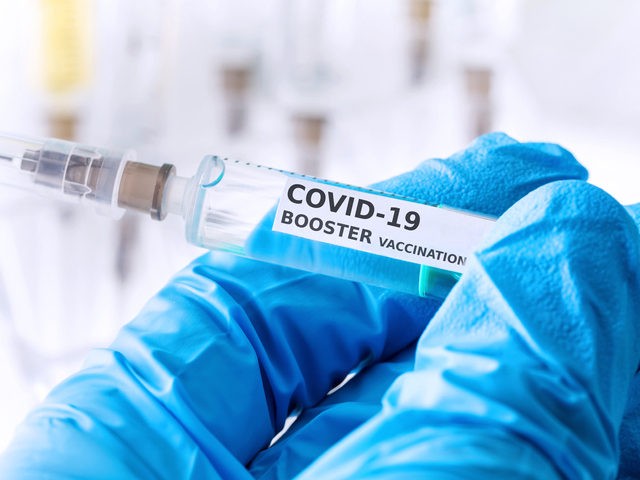The effectiveness of a booster shot for the Chinese coronavirus decreases after four months, a Centers for Disease Control and Prevention (CDC) study released this week found.
The study found that vaccine effectiveness after the initial third dose was “always higher than VE following a second dose but waned with increasing time since vaccination” — particularly four months in.
Per the study:
During the Omicron-predominant period, mRNA vaccination was highly effective against both COVID-19–associated ED/UC encounters (VE = 87%) and COVID-19 hospitalizations (VE = 91%) within 2 months after a third dose, but effectiveness waned, declining to 66% for prevention of COVID-19–associated ED/UC encounters by the fourth month after receipt of a third dose and to 78% for hospitalizations by the fourth month after receipt of a third dose.
New study among adults found that while protection from a 3rd dose of an mRNA #COVID19 vaccine (Pfizer-BioNTech or Moderna) decreased with time during Omicron, a 3rd dose continues to offer high levels of protection against severe illness with COVID-19. https://t.co/eLdNMAyACP pic.twitter.com/hWsvgu7COD
— CDC (@CDCgov) February 11, 2022
According to the Washington Post, “protection faded more in preventing trips to urgent care and emergency departments, falling from 87 percent in the first two months to 66 percent after four months.” However, vaccine effectiveness dropped even more after the five-month mark, tumbling to 31 percent. But the Post added a caveat, reporting that researchers “noted that estimate was ‘imprecise because few data were available for that group of people.”

COMMENTS
Please let us know if you're having issues with commenting.